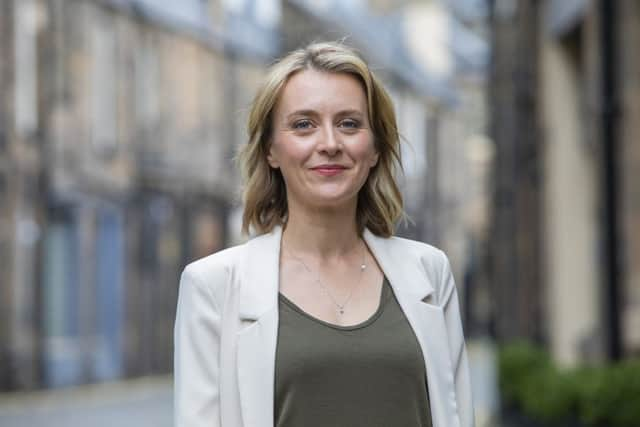Help cancer research take a big step by helping us fund vital projects – Dr Helen Rippon


In the 40 years since the charity was established, we have funded 1,870 projects in 32 different countries across the world.
Cancer survival rates have doubled since Worldwide Cancer Research was first founded, which demonstrates the importance of this work – but we still have a long way to go.
Advertisement
Hide AdAdvertisement
Hide AdIn Scotland alone, 32,200 people are diagnosed with cancer every year, and every day 44 people will lose their lives to cancer.


We are the only Scottish cancer research charity and one of the few in the UK to fund research into any type of cancer.
There are more than 200 types of cancer and it’s crucial that our scientists are given the time and the funds to understand them all in order to find new treatments. What we are looking for are the boldest research ideas, formed by the brightest minds in cancer research from around the world.
Finding the funding we need to make new breakthroughs in cancer research is an ongoing challenge. While some cancers have seen vast improvements in terms of treatments, others have seen little or no change.
We know for example that urgent research is currently needed into brain, lung and pancreatic cancer.Approximately 784 people are diagnosed with pancreatic cancer each year in Scotland. With only 1 per cent of those diagnosed surviving ten years or more, it has the lowest survival rate of the 29 most common cancers. It is often diagnosed late, making it more challenging to treat.
We’re currently funding Dr Patricia Sancho and her team in Spain with support from FC-AECC, who are trying to uncover the biological mechanisms that make pancreatic cancer so aggressive. Understanding how cancer cells use fat to survive, thrive and spread is an essential step towards identifying new potential drug targets that could be used to develop much needed therapies for this very aggressive form of cancer.
Since 1979, we have provided £191 million to fund research, and this year, in our 40th anniversary, at our annual Bold Ideas Gathering, we will allocate a further £4 million.
At the meeting, the group will go through the ideas put forward by scientists from all over the world to identify the projects that they believe will have the greatest impact on the lives of people with cancer. With an average research project costing around £200,000, the panel will have to select around 20 from 130 projects.
Advertisement
Hide AdAdvertisement
Hide AdThat means there will be 110 projects, and 110 possible cures, lost.
In order to be able to support more of these projects, we urgently need to raise more funds. This is why we have launched The First Step campaign this month. People living in Edinburgh and Glasgow will see our series of specially designed steps appear across the busiest streets and shopping centres, encouraging people to take their own first step in helping to find the cures for cancer by donating to the charity.
This captures what our researchers provide – they provide the first step, the initial idea which provides the breakthrough moment.
For example, in 2001 Worldwide Cancer Research funded a project Professor Dario Alessi was running at the University of Dundee.
In 2003, his findings led him down an unexpected path to studying cancer risk in people with type 2 diabetes, with surprising results. He concluded that if you have type 2 diabetes and you are treated with the drug metformin, you’re less likely to get cancer.
Type 2 diabetes is a disease that leaves a person unable to regulate their blood sugar levels. Metformin, the 10p per pill treatment for diabetes which is taken by more than 150 million people around the world, corrects this error to some degree, sparking a field of research that has led to hundreds of clinical trials worldwide.
There’s a quote that really sums up the importance of this discovery, made by Professor Lewis Cantley at Cornell University in the US on reading this research. He said: “Metformin may have already saved more people from cancer deaths than any other drug in history.” We know that bold research will cure cancer. We know that one day cancer will no longer be feared. But we can’t do it alone – the more pioneering research we can fund the sooner that day will come.
Dr Helen Rippon, chief executive, Worldwide Cancer Research.